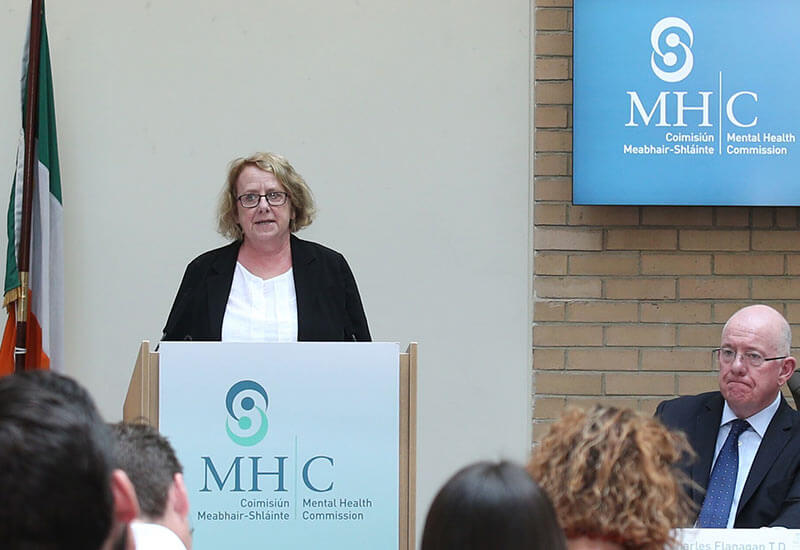
Ireland’s ageing, neglected and understaffed mental health facilities meant that many mentally ill people were living in or receiving treatment in unsuitable, run-down approved centres and we were not providing a nation-wide, comprehensive mental health service for older people,according to the Inspector of Mental Health Services, Dr. Susan Finnerty.
The use of mechanical restraint on a child is a concerning development in Ireland
Many Irish mental health facilitieswere ageing and had suffered from years of neglect and lack of funding, she said in the 2020 Inspector’s report.
“We now find ourselves in the position where a large amount of funding is required across the country to render facilities acceptable for mental health care and treatment. The standard of newly built mental health facilities is high, but the number of these is few and funding for remaining essential new builds and extensive renovations remains low and difficult to attain.”
She said Ireland had highly trained and committed specialist psychiatrists, yet only 66% of the recommended number of specialist teams which themselves were only staffed at an overall level of 54%.
Dr. Finnerty said that in 2020, the Commission published a report about mental health services for older people in Ireland. Approximately 15% of adults aged 60 and over suffered from a mental illness, including depression, dementia, anxiety, alcohol dependence, and schizophrenia as well as physical illness. They might also suffer from lack of appropriate accommodation, loneliness, bereavement, and financial difficulties. “It is essential that services for older people are integrated to provide a holistic, joined-up approach.
The Inspector said the buildings of many mental health units were not appropriate for delivering mental health care. Many were converted from other healthcare buildings and were unsuitable as mental health facilities, with long corridors, poor lines of sight, cramped living and sleeping space, multi-occupancy bedrooms, and small sitting rooms. Many acute facilities had no dedicated beds for older people.
Dr. Finnerty said that although inpatients care plans were provided for almost all inpatients, the quality was poor in most approved centres. “There is a failure by many consultant psychiatrists as clinical leads to ensure that inpatients have an individual care plan that enables recovery, and involves the person in caring for their own mental health. Multi-disciplinary team members are sometimes slow to attend careplan meetings and assist in developing a meaningful care plan. Nursing staff cannot develop and review care plans in isolation and yet this is often the case. People in approved centres have a legal right to a care plan and to be involved in developing and reviewing it. They and their families, as well as agencies that support and advocate for them, should insist that each person has a meaningful care plan, that is owned by them and that is their manual for recovery.”
The Inspector is seriously concerned about the introduction of mechanical restraint as a restrictive practice in Ireland’s mental health services, and even more so that mechanical restraint was used to manage the behaviour of a young person. “Mechanical restraint is traumatic, counter therapeutic, and dehumanising and has no place in a person-centred recovery focused mental health service, let alone in the care and treatment of a young person“.
“The use of mechanical restraint on a child is a concerning development in Ireland. Mechanical restraint in children or adults has not been a practice since the introduction of the Mental Health Act 2001, apart from transport to and from the National Forensic Mental Health Services in the Central Mental Hospital. International guidelines recommend that itis not used in children. The Inspector strongly recommends that mechanical restraint does not become part of the delivery of mental health services in either children or adults“.

